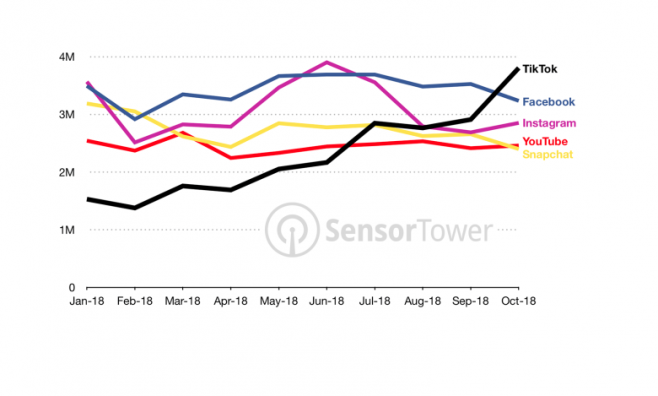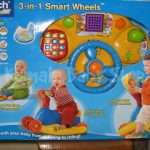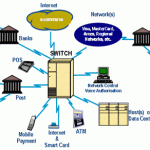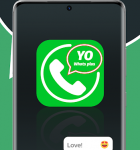
9 things you need toówe really use the smartphone
Mobile is not a technology, it is above all a tool for fulfilling human needs. Let’s get away from the discussion about what technology will win or what novelties Google or Apple showed. Today it’s not about whether the application is written in Xamarin, Flutter or ionic, which sensors are used in the application, but about the number of people who use itóin or from where it gets its data. The user is not interested in it. What matters is what practical problems it solves and what needs it meets.
1. Staying in touch with loved ones
Today, the fastest growing application segment, in terms of time spent, is instant messaging – Messenger and WhatsApp. Additionally we can chat via Instagram or TikTok. Chatting on instant messaging is just convenient, we don’t have to give it our full attention, we can join the conversation róthe number of osób, add a photo or video to illustrate our point. And when we want complete intimacy, there’s nothing stopping us from turning on video conferencing and talking to loved ones at virtually no charge. It’s hard to find a more emotionally bonding use of a smartphone.
2. Getting to know the gossip from my social bubble
If waiting for something takes more than 7 seconds, people tend to check their phoneów. Most often they look at social networks to check what has happened in their social bubble – Facebook, Instagram or TikTok allow us to fill any time space. Because our mózg does not know how to be bored. You can also see how services evolve and gain in value, które are the most private and least controversial. While people are giving up Twitter or Facebook, Instagram and TikTok, on whichóThe popularity of these services, which only discuss important topics and the world created by friends, is growing rapidly.
Number of usersóin social networks – USA, 2018
3. Trusting strangers
What they have in commonólnego BlaBlaCar, Tinder, Uber and AirBnB? They all serve the purpose of making us trust a completely unknown person. In Uber and BlaBlaCar, we board with a person whoóra does not have any license and is completely anonymous. Just 10 years ago we were teaching children „don’t get in the car with strangers”. Today we encourage – „Take an Uber on the way back from a party”. Dating sites serve to preselect candidatesóon Facebook, Instagram or Tikkokólne meeting. Thanks to AirBnB we sleep in an unauthorized place. Where the power of these services comes fromów? OtóThe research, m.in. BlaBlaCar show that when a profile is completed well, user reviewsów, photo and description make us trust the person as our own friend! Today we trust other users so much that we are comfortable getting into cars or staying overnight with strangers.
4. Payments
Mobile payments, mobile payments. For the user it is not about whether they are mobile. They have to be convenient. Simply put, the phone is a device thatóre has become our authorization system and we always have it with us. And, thanks to authorization, they are relatively safe. Previously we needed a piece of plastic and a pin. Today it can be on our phone or watch. Non-cash paymentsówks are simply faster and more comfortable. Probably readers of this blog take it for granted to pay with their phone, but that’s still a minority of transactions. A few days ago at the post office in downtown Warsaw, I was, according to the person working there, the first person whoóra paid with a watch. Payments as subscriptions. Payments instead of cards, online shopping – We want to have all this at our fingertips, and a phone is the most convenient for this.
5. Capturing and sharing moments
People love to capture moments, but they care even more about sharing them. One of the biggest problemsóinto the cameraów and digital cameras is that people are taking videos and photos but don’t want to rip them anymore. GoPro adds to its cameras a free program Quik for automatic mounting. All to encourage the useróin order to share their work online. When you look at how theób manufacturers are promoting phones today, they are mostly 2, 3 or 4 cameras with a good lens. But more importantly, they allow for digital and optical depth, which has been one of the recent backlogs relative to professional photography. However, what is the greatest advantage of smartphonesóin comparison to digital cameras, is the immediate possibility of turning the camera onóbki and photo sharing.
6. Listening to music, podcastingóin and watching series
Despite advances in technology, one thing has not changed – we love music. Mobile is also behind the rise in podcast popularityóin and amount of serviceóin music. This has been recognized, for example, by YouTube Premium, whichóry has eliminated the most annoying feature of – not playing in the background. Now it lets you listen to moviesóand music on a blank screen. Similarly large screens and the availability of LTE nowadays allow you to watch TV series on the streetcar or bus. That’s why the best hardware Apple has made since Steve died’and Jobs, are Airpods. Headphones pair and charge instantly. They do not fall out of ears even during sport. And the number of their podróThe pin is proof of their commercial success.
7. Sport and activity
We want to take care of ourselves, we want to have a shapely figure and feel great in our bodies. The obstacle is the fact that most of us sit in a bent, non-ergonomic position for over 8 hours a day. We find it hard to motivate ourselves and remember to get up from our desks at the simplest. Many apps, watches or bands that measure activity come to the rescue. There is no advanced technology in them, but they give us information and motivate us to exercise systematically. If you remember when you were young tying a loop on your finger to remember something, a smartwatch works in a similar wayób. In addition, they collect and archive our individual progress, in other words, they act like a personal trainer.
8. Confirmation of identity
When making payments mówe’ve told you about user authentication. The phone is now our digital ID card. Already today, thanks to the m-citizen application we can show a phone instead of an ID card at the office. But let’s think about Office cards, whichópayments somehow always get lost and sometimes we forget them when we go to lunch. The phone has become so close to us that the reflex „I left my phone” It goes off every time we get up from our desks. Another use for identity proofing is loyalty cards. Plastics serve no purpose other than to give us a certain number, whichóry authorizes us. It is certainly much more practical than carrying cards to add this number to your phone. Thanks to this there is a greater chance that we will actually use the card in the store and make purchases.
9. Entertainment
Mobile games are the second, after social media, way weób to spend more than 7 seconds of your free time. Today we have two growing segments of games – these consoles, whichóre are for gamers, they cost a lot and have to be a hit to earn the huge production costs (e.g. The first of these is related to making money (e.g. Cyberpunk 2077 by CD Projekt), or simple games for the phone. The space between console and mobile games is shrinking. Either we play on phones or on consoles. AR and VR become a great element of entertainment today. Despite the huge progress in both areas, still such equipment costs 2-20 thousand zlotys. And we already have a phone, often with a resolution and processor close to what dedicated devices offer.
Motivations and needs are important
As you can see, there is no mobile revolution. Technology is not important. Human motivations and needs are important. And the fact that they are answered by a smartphone is a result of its accessibility and growing efficiency. The discovery of a new smartphone application is still based not only on the construction of an original algorithm, but above all on the idea of how to understand and respond to human needs.




